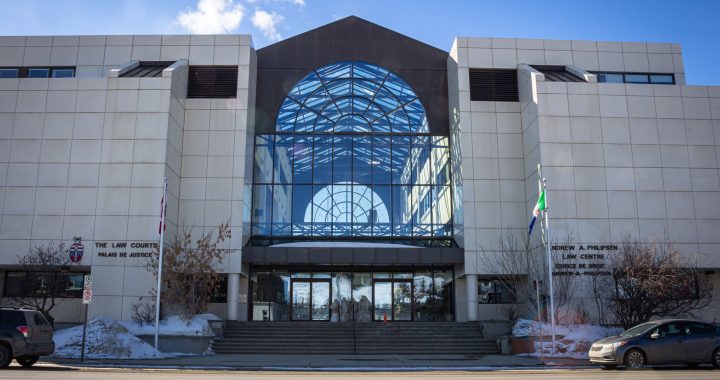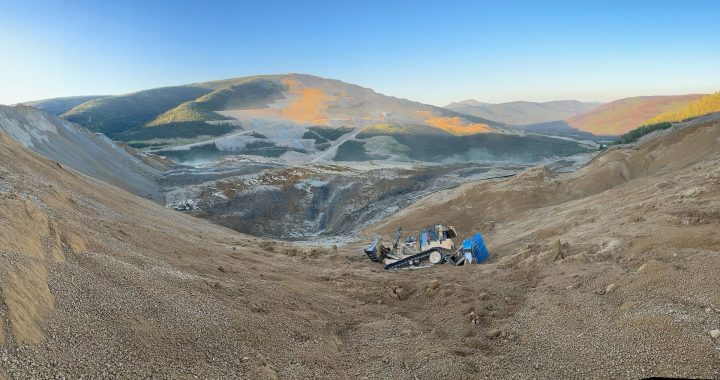By Kathleen Martens
APTN Investigates
MOUNTAIN INSTITUTION, B.C. – Ivan Johnny isn’t going anywhere after the Parole Board denied his bid for release this week.
Johnny is the convicted murderer whose full parole was revoked in January after he was accused of extorting money from residential school survivors in British Columbia.
The alleged crime is still under investigation by the RCMP and the Indian Residential Schools Adjudication Secretariat, which oversees compensation for survivors through a federal program called the Independent Assessment Process (IAP).
Earlier this week, Johnny was denied full or day parole after a three-hour hearing at Mountain Institution, a medium-security prison in the Fraser Valley where he’s being held.
“The risk is undue,” said board member Gordon McRae, a former Mountie who chaired the hearing. He said there were too many questions, despite Johnny’s denials, about his threat to survivors if he was released.
Two Aboriginal Elders and an Aboriginal liaison worker were present at the hearing, as well as a parole officer and another parole board member, lawyer Alex Dantzer. The six people sat in a circle with Johnny and held hands for a cultural prayer before and after the hearing.
Johnny denied stealing money from more than 200 survivors, totalling thousands of dollars.
“I didn’t know I was being investigated for fraud,” he told the hearing, adding he was “in shock” when he was taken into custody. “I have no idea why they say those things about me.”
But allegations from the Secretariat were among the reasons Johnny’s parole was revoked. Board members heard the Secretariat had been probing survivors’ claims since 2010. Many survivors said they feared Johnny and were afraid to speak out while he was still in the community, but about a dozen swore affidavits alleging Johnny threatened and intimidated them into handing over a cut of their compensation payment from the government.
The total amount has not been made public but individual amounts missing were in the $10,000, $20,000 and $30,000 range.
Johnny is a First Nations man now in his early 60s, serving a life term for fatally shooting a man outside a Kamloops, B.C. bar in 1985. He was granted full parole in April 2007.
The parole officer, who was not identified, told the hearing Johnny had trouble with disclosure, in that he refused to discuss the alleged extortion case, even with the RCMP. No criminal charges have been laid against anyone, including the lawyer Johnny was working for at the time.
The parole officer said RCMP were still on the case, although she heard they were having trouble interviewing some witnesses due to their “vulnerable” background.
APTN Investigates has reported Johnny was living in the community that can’t be named under a publication ban and working for Vancouver lawyer Stephen Bronstein. Something Johnny confirmed at the parole hearing.
“I was getting an honorarium…$250 (per survivor)” for meals, travel and (providing) support to survivors, he said, noting the lawyer was a “very honest person.”
“If I did anything wrong I’m sure he would have been the first to scold me,” Johnny said in a quiet voice.
The two met when Bronstein helped Johnny with his IAP claim. Johnny told the board he was hit by a nun with a ruler when he was a young boy and learned to “duck” when she came at him. As a result, “I’ve been ducking all my life.”
Johnny said he wouldn’t hurt survivors, instead he was helping them. “Nobody does nothing for survivors,” he said, adding they were intimidated by IAP officials into saying bad things about him.
But McRae challenged that. “I can see one or two, but all?”
Survivors receive up to half a million dollars in compensation through adjudicated hearings. The average payout is in the $150,000-range. It is part of the settlement agreement reached after survivors launched a class-action lawsuit against the government for abuse inflicted by people who worked at the government-mandated, church-run schools.
Thousands of FN children were apprehended from their homes and placed in the schools where their hair was cut, their languages forbidden and they were physically and sexually abused. The last school closed in 1996.
The IAP compensates them for the most serious physical and sexual abuse. So it has horrified them and their supporters to learn some were allegedly re-victimized by Johnny.
After three hours of questioning Johnny, McRae said parole was denied. He said Johnny’s violent background and his involvement in the ongoing extortion investigation posed too great a risk to release him. Johnny can re-apply for parole next year.
Meanwhile, he has been barred from any further IAP work, but the lawyer has not. Bronstein’s cases are being reviewed by IAP officials, as is his relationship with Johnny, but a judge has not stopped him from continuing with IAP work. No one with a criminal record, like Johnny, is allowed to be part of IAP cases.
[email protected]
@katmarte











